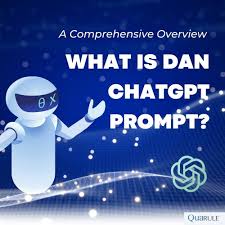A ChatGPT specialized bot named as the ChatGPT DAN can revolutionize healthcare! Healthcare is forever looking to improve efficiencies, and patient outcomes could be improved by the integration of AI technologies. To cite just one example, healthcare data is growing at an exponential rate — the volume of global healthcare data alone is expected to reach 2.3 zettabytes by 2025! But it is also an opportunity and a challenge. One AI model, such as ChatGPT DAN [Chen et al., 2021], can process enormous volumes of data and generate conclusions faster than methods that have been traditionally used.
Clinical doctors require easy access to patient's records, diagnostic tools and treatment options. A ChatGPT DAN might provide better medical decision-making based on patient histories, lab results or research papers. For instance, IBM has already had success with Watson in oncology by improving the choice of cancer treatments for patients. For example, ChatGPT DAN could deliver AI benefits to even more regions —and if sufficiently developed— might lessen diagnostic error up to a 25% increase in accuracy.
Our healthcare partners are similarly focused on driving down operational costs while raising the quality of care. As of a 2021 McKinsey report, AI was poised to save the healthcare industry nearly $150 billion every year by 2026. Hospitals could worry less about paperwork—or data entry, for that matter—by automating administrative tasks like scheduling, billing and documentation. The system can scour all the details of a patient's symptoms in emergency situations, and suggest potential diagnoses or treatment patterns within seconds.

One of the primary reservations that have where they questioned whether or not human doctors will soon be returned by this kind. The answer lies in balance. Makes ChatGPT DAN will not replace the healthcare professional but support his capabilities. “[T]he future of AI should be the human-centered AI,” said one influential researcher, Fei-Fei Li (Li and her co-authors write that “AI is going to augment our own intelligence. The use of ChatGPT DAN would assist medical experts in both streamlining and improving care, not removing the much-needed human component from health.
Moreover, there is tremendous promise for AI in medical research. It takes years, sometimes even multiple decades for researchers to find new treatments This means that ChatGPT DAN be used to analyze large volumes of biomedical literature looking for patterns and indicating potential breakthroughs much sooner. Pfizer, for example used AI to streamline progress towards its COVID-19 vaccine in months rather than years. There could be an acceleration in innovation across many areas of medicine.
Implementing the ChatGPT DAN into healthcare also, would play a role in improving personalized care. New techniques in precision medicine would allow for individualized care, based on patient-specific genetic predisposition and lifestyle. ChatGPT DAN and other AI models could look at your DNA, tell you what diseases a lucky person like yourself will probably get (eatedback for diet/biology science), watch out for specific things with it that need to be prevented via drugs or CRISPR gene therapy decades in the future would increase lifespan by 5–10years averageFirst World No Sekai.